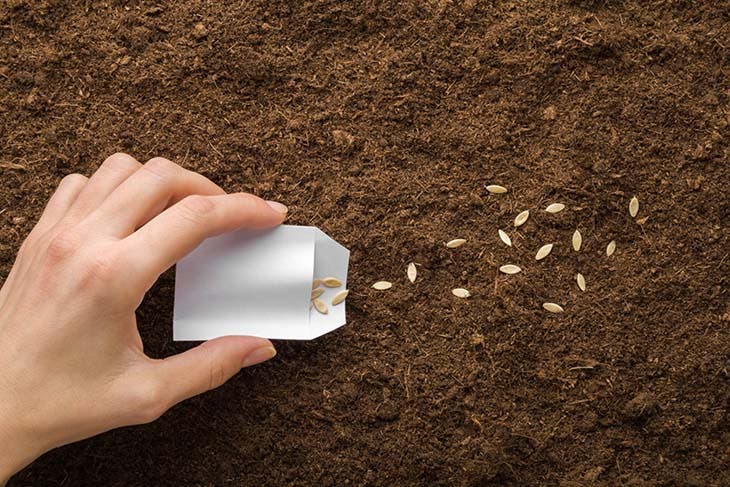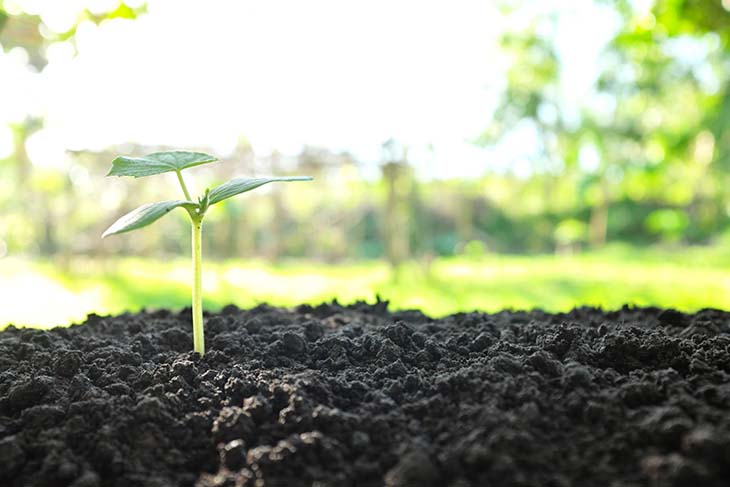How to plant cucumbers successfully?
Cucumber is an annual deciduous vegetable plant. Originally from Asia, this summer vegetable is rich in water and fiber that is beneficial for good intestinal transit. To reap the benefits of cucumber and enjoy an organic harvest, consider growing it in your garden. To do this, discover the 6 important things to keep in mind to plant cucumbers successfully.
Cucumber is a refreshing vegetable. It can be eaten raw in a salad or with other raw vegetables. To successfully grow this vegetable plant and get a crisp and juicy harvest , you must first successfully complete the planting stage.
What are the 6 important things you need to know for successful planting of cucumbers?
For a successful planting of cucumbers, these 6 factors must be taken into account.
- Respect the cucumber planting period.

Cucumber seeds – Source: spm
The cucumber appreciates being exposed to the sun and likes a temperate climate. That said, the ideal time to plant cucumbers is between March and May. If you want to sow the seeds in March, you should do so under a heated shelter. Only after the seeds have germinated, you can transplant the seedlings into open ground. But this should be done only at the end of frost, that is, from mid-May. In this case, make sure to maintain a one-meter space between the plants.
Since cucumbers do not like cold and frost, you can sow them in place, that is, directly in the place where they will be harvested, only from mid-May. Plant up to 3 seeds per hole, making sure to maintain a one meter spacing between plants.
- Choosing the right soil for growing cucumbers.
Cucumbers prefer well-drained, deep, loose, that is, light, soil that has been previously worked. The cucumber also appreciates a humus-rich soil, which means a soil rich in plant remains and therefore rich in humus.
If you have chosen to start seeds indoors, fill the pots with a good potting soil. The latter is characterized by its ability to retain water and nutrients, while being draining, to allow air to circulate around the roots. Plant up to 3 seeds per pot and cover them with about 2 cm of potting soil.
- Keep cucumber seeds warm to promote germination
To germinate, seeds need heat. Also, to successfully sow cucumbers in the ground, it is important to wait until the end of the frost, so that the seeds have enough heat and sun. As for potted seedlings, it is advisable to place the pots on a tray and place it on top of an appliance that gives off heat, such as a refrigerator. Then cover the tray with transparent film to retain heat. Please note that seedlings need a temperature of around 20°C.
- Conserve Moisture for Successful Cucumber Seed Germination
Seeds also need moisture to germinate. Furthermore, if it is advisable to cover the pots with transparent film, it is not only to retain heat, but also to conserve humidity. That being said, remember to check the soil every day and water it as needed. However, avoid overwatering, as this can rot the roots and cause young plants to wilt.

Young cucumber plant – Source: spm
- Provide light exposure for young cucumber plants
Cucumber seeds need light as soon as they begin to germinate. To do this, it is advisable to remove the transparent film covering the pots and place the tray under a fluorescent light bulb, as window light may not provide enough exposure to young plants. Keep in mind that even seeds sown locally need exposure to full sun, as well as protection from the wind.
- Know When to Prune and Transplant Young Cucumber Plants
Transplanting seedlings refers only to plantings carried out indoors, in pots. When the young plants reach about 3 cm in height, prune those that seem weak, to keep only the vigorous plants in each pot. When the plants you have maintained reach 5cm in height, transplant them into the ground in a sunny spot in your garden.
What vegetables should not be planted next to cucumber?
While there are many vegetables that are favorably associated with cucumbers, there are also other unsuitable plants that can prevent them from growing, including: melons, brassicas (kohlrabi, cauliflower, kale…), sage, fennel, potatoes.
Taking these 6 factors into account, you will be able to plant cucumbers, to obtain healthy and vigorous young plants, which will later give an abundant harvest.
